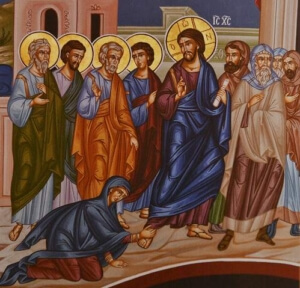By Monika Manser
Lectio Divina – Listening to God’s Word with our hearts
“And the word was made flesh and dwelt amongst us”
In Imaginative Contemplation we pray with the Scriptures, allowing Christ in the Scriptures to speak to us through our imagination. In Lectio Divina we pray with the Scriptures by dwelling on God’s word by listening with our heart. In Imaginative Contemplation, Jesus’ words, actions, teaching and relationships with people become familiar to us when we enter into the Scripture passage using our imagination. In Lectio Divina, God’s word becomes familiar to us by listening with out hearts and dwelling on His words. Listening with our hearts is something we do automatically in everyday life when we for example dwell on the beauty of nature or listening to someone we love or recall a poignant memory.
Lectio Divina or divine reading has four parts: reading, repeating, responding and resting.
Reading: Begin by reading the Scripture Passage slowly until a word or a phrase resonates with you. Then stop for the moment.
Repeating: Dwell on the words you have chosen. Repeat them again and again as though God is saying them to you. Try not to analyse them, just let them speak to you. Savour the words.
Responding: Be like Mary and “ponder these things in your heart”. Allow God’s heart to speak to your heart. He wants to be close to you so ask yourself what this invitation could mean. Speak to God with your heart. Be open to what he is trying to reveal to you. Share with God whatever is coming into your heart and mind.
Resting: Rest in the embrace and love of God. It is God’s response to us. Your whole being is focussed on God so dwell in the moment. When you feel ready, move on.
As you listen to the following passage, note which parts move you but don’t analyse anything. Then when you are ready, read, repeat, respond and rest and when you have dwelt on the words that initially resonated with you, continue on reading the passage and repeat the process.
Prayer
Acknowledge you are in the presence of God by saying the following prayer:
Direct O Lord and guide and influence all that is happening in my mind and heart during this time of prayer: all my moods and feelings, my memories and imaginings; my hopes and desires; may all be directed and influenced to your greater glory, praise and service and to my growth in your Spirit.
Amen
Let the Spirit enter our hearts and enlighten our minds as we listen to and reflect on the conversation between Jesus and the Canaanite woman. Let us. like this woman, acknowledge our humility and entrust ourselves to Jesus’ word of salvation.
Reading
Matthew 15:21-28
Jesus left Gennesaret and withdrew to the region of Tyre and Hidon. Then out came a Canaanite woman from that district and started shouting, “Sir, Son of David, take pity on me. My daughter is tormented by a devil.” But he answered her not a word. And his disciples went and pleaded with him. “Give her what she wants,” they said, “because she is shouting after us.”
He said in reply, “I was sent only to the lost sheep of the House of Israel.” But the woman had come up and was kneeling at his feet. “Lord,” she said, “help me.” He replied, “It is not fair to take the children’s food and throw it to the house-dogs.” She retorted, “Ah yes, sir; but even house-dogs can eat the scraps that fall from their master’s table.” Then Jesus answered her, “Woman, you have great faith. Let your wish be granted.” And from that moment her daughter was well again.
Questions for reflection
As you slowly read the passage allow the scene of Jesus’ encounter with the Canaanite woman to soak into your mind. The icon of the scene at the top of the page or any other image may help with that.
-
What is this passage saying to you?
-
What word(s), sentence or phrase most caught your attention; most touched your heart; most challenged you; most comforted you?
-
Can you think of a time when you have made a specially important petition of Jesus and he appeared to be paying no attention to you? Were you like the Canaanite woman and kept after him and gave out to him? Were you persistent in your prayer or were you discouraged?
-
Have you ever been like the apostles and given charity just to get rid of the person who was bothering you? How inclusive are you in word and action? What can we do as a parish community go out of our way to provide a welcome for the ‘outsider’?
-
Do you think that this encounter was a turning point in the life of Jesus? A turning point in the life of the woman? A turning point in the attitude of the apostles? Is this Gospel passage an invitation for you to have an openness towards everyone and acceptance for everyone irrespective of their race or creed?
End Prayer
Suscipe of St. Ignatius of Loyola
Take, Lord, and receive all my liberty,
my memory, my understanding,
and my entire will,
All I have and call my own.
You have given all to me.
To you, Lord, I return it.
Everything is yours; do with it what you will.
Give me only your love and your grace,
that is enough for me.
Scripture texts: from the Jerusalem Bible 1966 by Dartington Longman & Todd Ltd and Doubleday and Company Ltd


